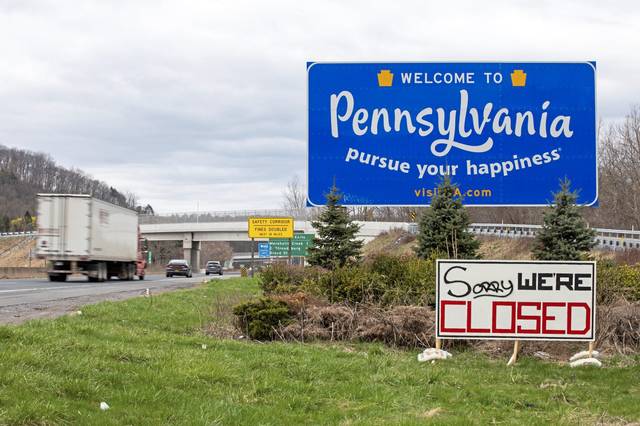Nearly all Pennsylvania restaurants have laid off employees during the coronavirus pandemic, according to a survey by the National Restaurant Association.
Primanti Brothers furloughed more than 1,500 employees across its nearly 40 locations, though it has since hired several hundred back, according to Adam Golomb, the Pittsburgh-based chain’s chief marketing officer.
“It really hit the industry hard,” Golomb said.
Golomb and John Longstreet, president of the Pennsylvania Restaurant and Lodging Association, addressed restaurateurs’ challenges Tuesday in a live video interview with the Pittsburgh Technology Council as part of its “Business as Usual” series.
Roughly half of Pennsylvania restaurants are closed, according to the National Restaurant Association survey. The other half is serving takeout or delivery, but these options can’t make up for lost dine-in customers, Longstreet said.
“Takeout alone is not going to sustain the business,” he said. “It is, however, helping people to get food.”
The survey found about 1% of Pennsylvania restaurants have closed permanently as a result of the crisis, and about 3% predict they will have to do so within the next month.
Though state officials plan to start gradually reopening businesses early next month, restaurateurs aren’t expecting a quick comeback, Longstreet said.
“It’s going to be a long recovery cycle,” he said.
Even when restaurants are allowed to reopen, they will likely be subject to restrictions, like limiting seating to maintain social distancing, according to Longstreet.
Consumers also might be cautious, opting to stay home even if doing so is no longer required to avoid contracting the virus.
There’s also long-term concerns about restaurants’ food supplies, Golomb said. Restaurants may soon have a hard time getting certain food products because of pandemic-related slowdowns in the supply chain.
“That’s the next thing, that people haven’t talked about,” he said. “You’re starting to see meat factories having problems.”
Consumers can support their favorite restaurants by ordering takeout and buying gift cards, Golomb said.
“That’s what all restaurants are looking for, how do I get cash to make it another week, make it another month?” he said.
The hotel industry has been similarly hard hit, Longstreet said. He compared the economic impact of coronavirus to that of 9/11, which ended commercial flights for weeks.
“It’s going to be the same thing now,” he said.
Even when businesses begin to reopen, corporate travel and large tourist events will probably be extremely limited for some time, Longstreet predicted.
The hit to the hotel industry could have a ripple effect on regional organizations devoted to promoting tourism, which are largely funded through hotel taxes, he said.
“There’s a number of challenges that it’s hard to see how we’ll overcome,” he said. “But the good news is we’re a resilient people, we’re a resilient industry.”
The Pittsburgh Technology Council’s “Business as Usual” series features daily video interviews with local and national notables discussing the coronavirus pandemic, hosted on Zoom.
An archive of past videos, schedule of upcoming streams, and registration link to watch the interviews live is available at pghtech.org/business-as-usual-archive.aspx








